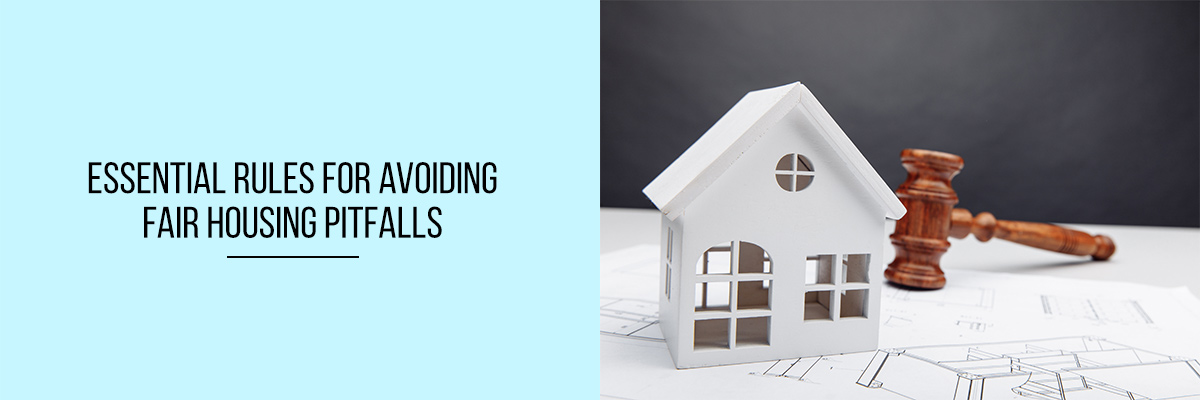Fair Housing laws are a set of federal and state laws designed to protect the rights of all people to be free from discrimination in housing.
When you take a look at the Fair Housing laws, there are literally hundreds of rules and regulations that a landlord needs to adhere to. State and local laws vary, and a landlord doesn’t always know all the specifics, so it’s a good idea to understand what is required of you.
Essential Rules for Avoiding Fair Housing Pitfalls
In the United States, the Fair Housing Act was passed in 1968. The Act prohibits discrimination in the renting, financing, sale, or ownership of housing because of race, color, national origin, gender, family status, religion, disability, and age. These laws have been interpreted by the courts to prohibit discrimination in all housing transactions, including real estate, mortgage loans, and even the leasing of apartments.
There are a number of crucial things to learn about Fair Housing and Housing Discrimination.
Let’s have a look at a few.
Don’t Discriminate
The Fair Housing Act, or FHA, is a federal law that was created to help make housing equal for everyone. The law aims to protect people who are discriminated against when it comes to access to housing.
One of the most basic requirements is that you cannot refuse to rent to anyone based on their race, religion, sex, family status, national origin, disability, or because he or she is a veteran. The landlord may also not discriminate against a family if the only adult in the family is a veteran. If you have a veteran on your property, you must make a reasonable accommodation so that the veteran may have access to a unit.
Consider Reasonable Accommodation and Modification Requests
In order for a person with a disability to obtain the use of a housing facility or a community, that person must meet certain qualifications, including the ability to perform the essential functions of the housing facility or community without undue difficulty or expense. The law requires that housing providers take reasonable steps to determine that a person has the essential functions of the facility or community before that person’s disability can be accommodated.
Abide by Rules Banning Discriminatory Advertising
In recent years, communities have been fighting instances of housing discrimination, which means the practice of giving certain people lower status than others based on a discriminatory characteristic. However, a number of communities have been found to have policies that prohibit fair housing advertisements that indicate a preference for a certain group of people. This can be interpreted as a potential violation of Federal law, which prohibits housing discrimination based on race, color, religion, national origin, sex, disability, or familial status.
Watch Out for Potential Retaliation Claims
The FHA has widespread enforcement powers, including the ability to fine violators, to collect any damages sustained by the aggrieved party, and to recover all reasonable attorney’s fees incurred in bringing suit. And, with a few exceptions, it’s also unlawful to retaliate against someone for exercising a fair housing right—or against anyone who assisted others in exercising that right.
Final Words
The Fair Housing Act (FHA) (42 U.S.C. § 3601 et seq.) is a federal law that prohibits discrimination in housing, including residential real estate transactions. The FHA covers both privately owned and publicly owned housing.
To know more about Fair Housing laws and pitfalls, attend the Compliance Prime webinar.


